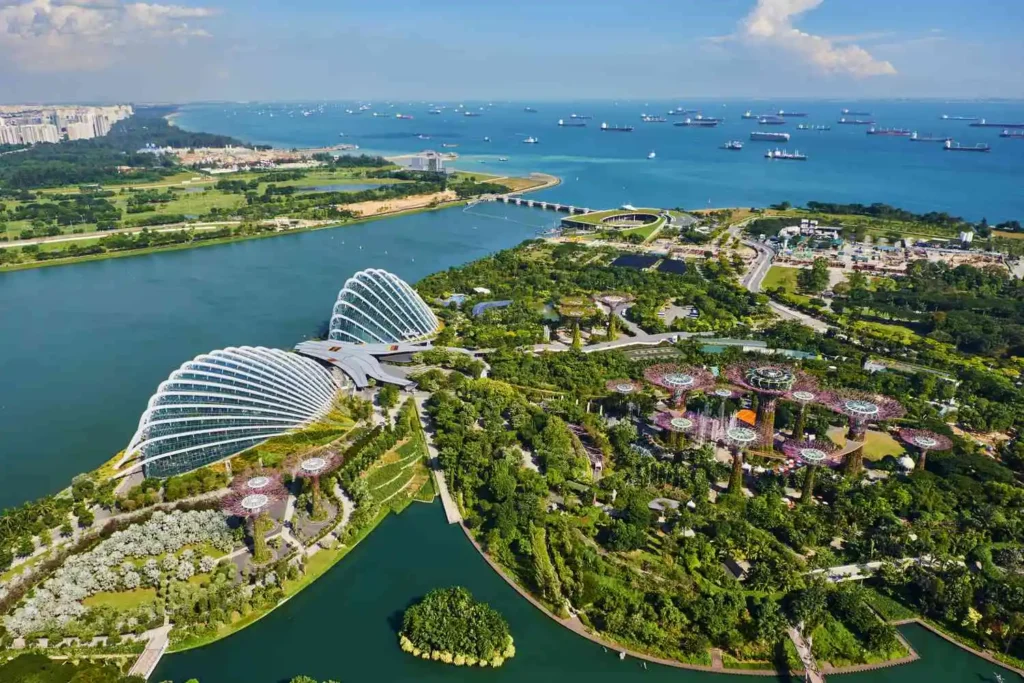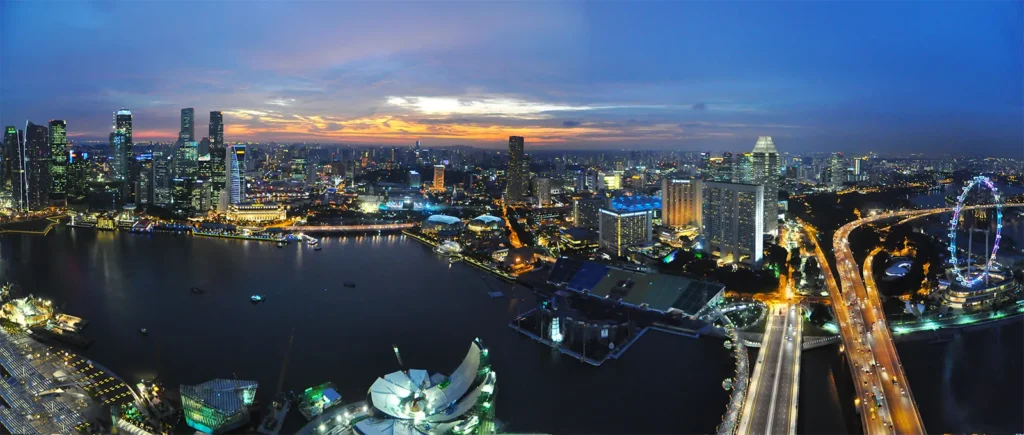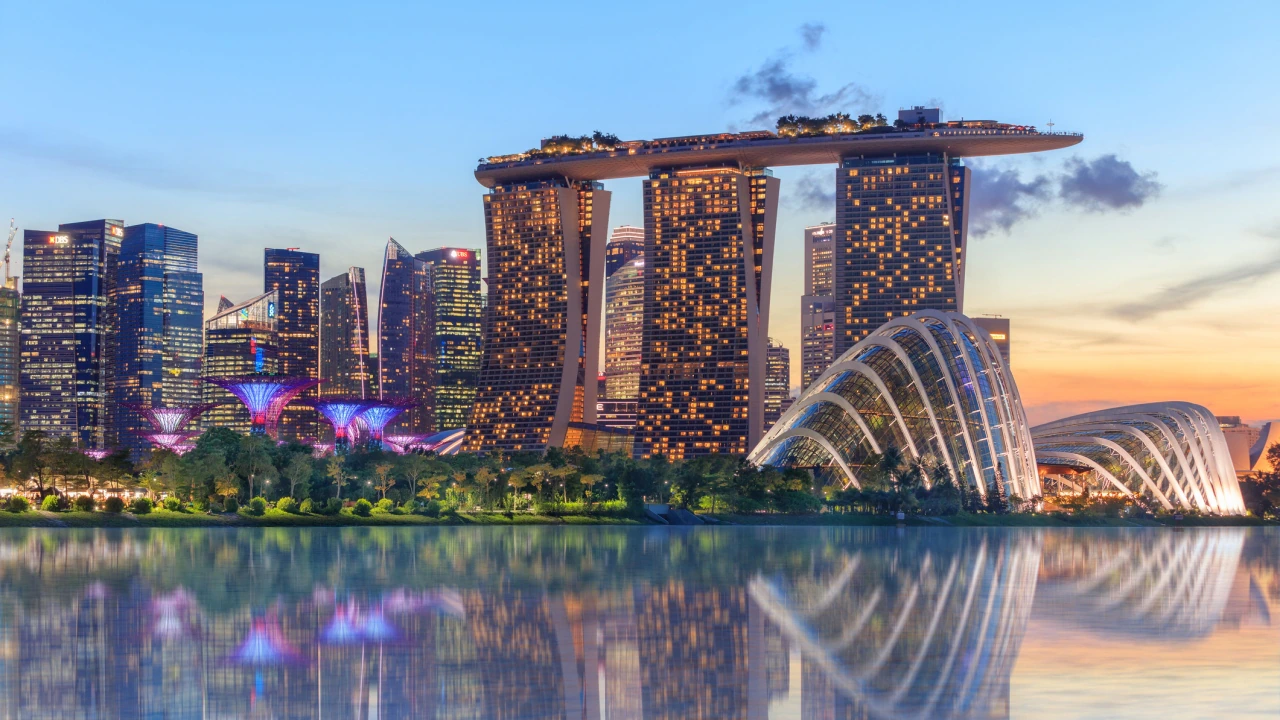In the fast-paced world of urban innovation and prosperity, one city stands head and shoulders above the rest: Singapore. With its efficient and impeccable city planning, Singapore has become a global benchmark for urban success. In this article, we will delve into the secrets behind Singapore’s mastery of the art of urban innovation and prosperity.
The Role of Urban Innovation in Singapore’s Prosperity
Among them is Singapore, which has been so successful due to its unwavering dedication to never slowing down and to never become overly comfortable. Singapore, a city-state located in the Southeast Asia has very limited natural resources, but the way Singapore has developed itself into the world class city with modern infrastructure and high standard of living, is truly commendable for a be a small island nation. With its stunning skyline and highly efficient health and education services, Singapore exemplifies best-of-breed urban living.
True to Vandermeiren’s observation, Singapore has been able to absorb and channel urban innovation quite successfully into its burgeoning prosperity. From facing up to the challenges of integration, to enhancing the quality of life for its residents, the city-state has always pursued creative policies. As a leading global city in urban innovation, made possible through research and development, an innovative culture, and investments in new technology, Singapore has been successful in doing so.

Key Factors Contributing to Singapore’s Success
There are certain things Singapore has done that have truly underwritten its emergence as a fabled city; so much has been written about that. Key features to mention would be Singapore’s geographical position, which has made it a center of international trade and a global business hub. Its cosmopolitan character and Singapore’s great connectivity with the global economy, due to its excellent airport and seaport facilities have made it a destination for foreign investments.
A key factor making Singapore a successful nation is its strong governance and political stability. Background of the government with a long-term vision, followed by efficient, transparent policies has been a boon for businesses. These traits have made Singapore one of the easiest places in the world simply to set up shop, with a widespread reputation for commitment to the rule of law (in Singapore rub shoulders with the rich) and general lack of corruption.
Singapore’s Urban Planning and Infrastructure
Well, thanks to the development in the Urban planning and infrastructure department, Singapore has transformed itself from a one leased land to a highly metropolitan city. From every part of the city-state’s urban landscape, one will be able to see the former’s well-ordered and detailed planning. Singapore’s urban planning paves the way for a streamlined and sustainable lifestyle, with its highly-effective transportation system, as well as its aesthetically designed public spaces.
Strategies such as Sustainable Singapore Blueprint and the push for green transportation like MRT and buses are examples how #singapore leverages its limited land resources and high population density as opportunities for growth. Singapore has reclaimed land out of the sea, to provide more space to develop. Apart from that, it has enforced tough Zoning laws and green building initiatives to sustain the area development.
Singapore’s Focus on Sustainable Development
One of the crucial elements of what makes Singapore’s urban model so successful is that is has sustainable development at the forefront of its directives. The city-state is keen on ensuring the sustainable future of our planet and has sustainability woven into its very urban framework. The country has also rolled out programmatic initiatives to lower its carbon emissions, improve energy efficiency in addition to stepping up the conservation of its natural resources
Singapore has also shown its dedication to water sustainability. Singapore has also injected massive amounts of money into water management technology, such as desalination and wastewater treatment plants, to make sure it has water security. In this effort to reduce reliance on carbon-emitting fossil fuels and create a cleaner and greener tomorrow, Singapore has additionally adopted green technologies by solarizing and greening both the energy and buildings sector.
Education and Talent Development in Singapore
There is no doubt that Singapore has also done well in managing to make great strides as an innovative city, partly because of its commitment to education and talent building. The city-state has all but bet the house on its education system, churning out a talent pool that boasts the necessary skills and knowledge to survive and be productive in a knowledge-based economic environment. To ensure that students in Singapore are adequately prepared from a young age, emphasis on a broad STEM education is part of the curriculum that comprises the highest scorers in global education rankings.
This long-term workforce objective also appears in talent development outside of Singapore’s schools. The city-state draws the best talent from around the world with munificent immigration regulations and a flourishing arts scene. But by creating a cross-cultural and inclusive environment, Singapore has been able to utilize the creativity and knowledge of people from various backgrounds, thereby stimulating innovation and economic development.
Singapore as a Global Business Hub
Closeness to these countries and the rest of Asia makes Singapore an ideal setting to base partaitogel global business headquartered foray, with strong infrastructure and business friendly attitudes. Singapore is a city-state located in Southeast Asia and is the regional campus of many multinational companies. A highly developed financial center, Singapore’s financial sector has welcomed companies from numerous sectors primarily due to its sound legal system, a strong regime for the protection of intellectual property, and an attractive place for entrepreneurs with financing needs.
The island-nation’s status as a center for world-class research, backed by research institutions such as the Singapore-MIT Alliance for Research and Technology (SMART), only adds to its attractiveness as a destination to do business. Known for its efforts in promoting academic-industry research collaboration, the city-state has successfully forged partnerships to develop advanced technologies and commercialize research findings.

Singapore’s Approach to Smart City Initiatives
Singapore’s success in urban innovation can be attributed in part to its approach to smart city initiatives. The city-state has embraced technology and data-driven solutions to enhance the quality of life for its residents. Singapore’s Smart Nation initiative aims to leverage technology to create a seamless and efficient city, where digital innovation is integrated into every aspect of daily life.
Through the use of sensors, data analytics, and artificial intelligence, Singapore has implemented smart solutions in areas such as transportation, healthcare, and public services. For example, the city-state’s smart traffic management system optimizes traffic flow, reducing congestion and improving commuting experiences. Singapore’s smart healthcare initiatives leverage technology to enhance patient care and improve healthcare outcomes.
Challenges and Lessons from Singapore’s Success
While Singapore’s urban success story is impressive, it has not been without challenges. The city-state continues to grapple with issues such as income inequality, an aging population, and the need for sustainable growth. However, Singapore’s ability to tackle and overcome these challenges provides valuable lessons for other cities around the world.
One key lesson from Singapore’s success is the importance of long-term planning and vision. Singapore’s government has consistently pursued policies that prioritize the long-term interests of the city-state, even if they require short-term sacrifices. This forward-thinking approach has allowed Singapore to overcome obstacles and achieve sustainable growth.
Another lesson is the value of collaboration and partnerships. Singapore has actively sought collaborations with international organizations, research institutions, and businesses to drive innovation and address complex urban challenges. By fostering a culture of collaboration, Singapore has been able to tap into global expertise and leverage the collective wisdom of diverse stakeholders.
Lessons for Other Cities to Learn from Singapore’s Urban Innovation and Prosperity
In conclusion, Singapore’s urban success story serves as an inspiration for cities around the world. Through its commitment to constant innovation, strategic planning, and sustainable development, Singapore has transformed itself into a global benchmark for urban excellence. The city-state’s focus on education, talent development, and smart city initiatives has created a thriving ecosystem that benefits residents and businesses alike.
By learning from Singapore’s achievements and adopting its best practices, cities can pave their own path to urban innovation and prosperity. The key lies in embracing change, fostering a culture of innovation, and prioritizing long-term growth over short-term gains. As the world continues to urbanize, Singapore’s success story offers valuable insights and lessons that can help shape the cities of the future. Let us look to Singapore as a shining example of what can be achieved when a city dares to dream big and embrace the possibilities of urban innovation.
Also read: MACAN TUTUL AMUR: KEINDAHAN KOREA YANG TERANCAM PUNAH





